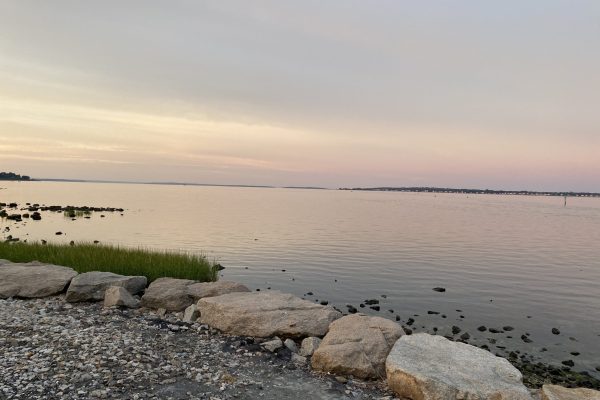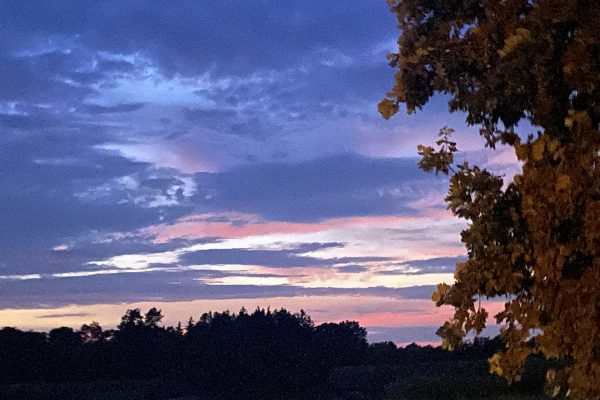It is customary for mourners, and those observing a Yahrzeit, to stand for Kaddish. In some congregations everyone rises.
יִתְגַּדַּל וְיִתְקַדַּשׁ שְׁמֵהּ רַבָּא בְּעָלְמָא דִּי בְרָא כִרְעוּתֵהּ וְיַמְלִיךְ
מַלְכוּתֵהּ בְּחַיֵּיכוֹן וּבְיוֹמֵיכון וּבְחַיֵּי דְכָל בֵּית יִשְׂרָאֵל בַּעֲגָלָא וּבִזְמַן
:קָרִיב, וְאִמְרוּ אָמֵן
:יְהֵא שְׁמֵהּ רַבָּא מְבָרַךְ לְעָלַם וּלְעָלְמֵי עָלְמַיָּא
יִתְבָּרַךְ וְיִשְׁתַּבַּח וְיִתְפָּאַר וְיִתְרוֹמַם וְיִתְנַשֵּׂא וְיִתְהַדָּר וְיִתְעַלֶּה
וְיִתְהַלַּל שְׁמֵהּ דְּקֻדְשָׁא בְּרִיךְ הוּא
מִן כָּל בִּרְכָתָא (Between Rosh Hashanah and Yom Kippur, add: לְעֵלָּא) לְעֵלָּא
:וְשִׁירָתָא תֻּשְׁבְּחָתָא וְנֶחֱמָתָא דַּאֲמִירָן בְּעָלְמָא וְאִמְרוּ אָמֵן
:יְהֵא שְׁלָמָא רַבָּא מִן שְׁמַיָּא וְחַיִּים עָלֵינוּ וְעַל כָּל יִשְׂרָאֵל וְאִמְרוּ אָמֵן
:יְהֵא שְׁלָמָא רַבָּא מִן שְׁמַיָּא וְחַיִּים עָלֵינוּ וְעַל כָּל יִשְׂרָאֵל וְאִמְרוּ אָמֵן
עוֹשֶׂה שָׁלוֹם בִּמְרוֹמָיו הוּא יַעֲשֶׂה שָׁלוֹם עָלֵינוּ וְעַל כָּל יִשְׂרָאֵל וְעַל
:כָּל יוֹשְׁבֵי תֵבֵל וְאִמְרוּ אָמֵן
Reader: Yitgadal veyitkadash shemey raba
be’alma di vera ḥirutey veyamliḥ malḥutey
beḥayeyḥon uvyomeyḥon uvḥayey deḥol beyt yisra’el
ba’agala uvizman kariv ve’imru amen.
Congregation: Yehey shemey raba mevaraḥ le’alam ulalmey almaya.
Reader: Yitbaraḥ veyishtabaḥ veyitpa’ar veyitromam
veyitnasey veyit-hadar veyitaleh veyit-halal
shmey dekudsha beriḥ hu
le’ela (Between Rosh Hashanah and Yom Kippur, add: le’ela) min kol birḥata
veshirata tushbeḥata veneḥemata, da’amiran be’alma
ve’imru, amen.
Yehey shelama raba min shamaya veḥayim aleynu ve’al kol
yisra’el ve’imru amen.
Oseh shalom bimromav hu ya’aseh shalom aleynu ve’al kol
yisrael ve’al kol yoshvey tevel ve’imru amen.
Reader: Let God’s name be made great and holy in the world that was created as God willed. May God complete the holy realm in your own lifetime, in your days, and in the days of all the house of Israel, quickly and soon. And say: Amen.
Congregation: May God’s great name be blessed, forever and as long as worlds endure.
Reader: May it be blessed, and praised, and glorified, and held in honor, viewed with awe, embellished and revered; and may the blessed name of holiness be hailed, though it be higher (Between Rosh Hashanah and Yom Kippur, add: by far) than all the blessings, songs, praises, and consolations that we utter in this world. And say: Amen.
May Heaven grant a universal peace, and life for us, and for all Israel. And say: amen.
May the one who creates harmony above, make peace for us and for all Israel, and for all who dwell on earth. And say: Amen.










